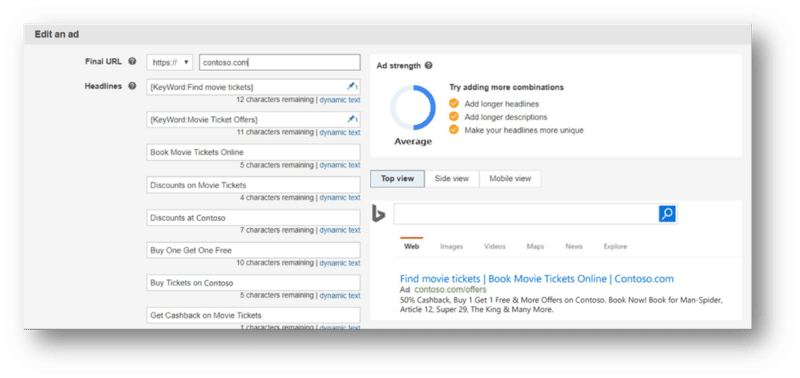Responsive Search Ads take center stage – are you prepared?

Responsive Search Ads – RSA for short – are not the new kids on the block. RSAs have been a part of the PPC ecosystem for a few years. That being said, RSAs have been a hot topic in 2022. Why all the hubbub about them now?
This summer, the preceding ad type, Expanded Text Ads, is being deprecated. This puts Responsive Search Ads front and center for advertisers as the singular text ad type for search campaigns. Let’s dig in a little bit deeper on RSAs, the change and how you can maximize your potential with RSAs.
Why RSAs matter
Responsive Search Ads are all about serving the right message at the right time. RSAs are a flexible ad experience that show more customized content to reach your customers. These ads adapt your text ads to closely match what someone is searching for when they search for it.
Further, RSAs can help to reduce bulky operations and save time. Advertisers provide up to 15 headlines and up to four descriptions. All of these components can create over 40,000 possible ad permutations! Find efficiency in evaluating ads through A/B tests and automatically determine what creative content works best with different queries.

Expanded Text Ad deprecation
The deprecation of Expanded Text Ads is coming in two waves this summer. The first wave was for Google Ads on June 30th. The second wave will be Microsoft Advertising. As of August 29th, advertisers will no longer be able to create new Expanded Text Ads.
On both platforms, previously existing Expanded Text Ads will continue to serve. Note that though you can toggle these ads on and off, you will no longer be able to edit the ads.
Maximize your potential with RSAs
How can you maximize your potential with RSAs? First and foremost, get started by launching RSAs alongside Expanded Text Ads today if you haven’t already. Here are some additional best practices to consider when working with RSAs:
- Convert top-performing content from your existing Expanded Text Ads into distinct RSA headlines and descriptions.
- Ensure there are at least two to three Responsive Search Ads in all of your ad groups.
- Include top-performing keywords and clear calls to action within your headline and description assets.
- Create at least 11-15 headlines and use a combination of short and long headlines to maximize character count across all devices.

- Make the content as distinct as possible:
- Avoid repetitive language
- Create unique headlines
- Consider additional product or service benefits or features
- Test a clear call-to-action
- Include shipping and return information
- Take RSAs to the next level by customizing your assets:
- Ad customizers
- Countdown timer
- Location insertion
- Dynamic keyword insertion
- Place the Universal Event Tracking (UET) tag across your website with conversion tracking enabled to provide stronger optimization signals for the RSA algorithm.
- Review asset strength, combination reports and other details within the Assets tab to optimize your assets with low impressions.
Responsive Search Ads have taken center stage in search campaigns. If you were sleeping on RSAs before, it is time to wake up and take notice. Start creating RSAs to launch alongside your existing Expanded Text Ads today. Happy ad testing, everyone!
The post Responsive Search Ads take center stage – are you prepared? appeared first on Search Engine Land.
Comments
Post a Comment